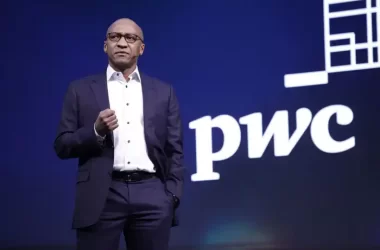Lenovo’s 2025 “Work Reborn” report has offered a compelling blueprint for organisations seeking to harness Gen AI through comprehensive digital workplace transformation. Based on a global survey of 600 IT leaders, the report identifies critical barriers, strategic imperatives, and actionable recommendations that are highly relevant to the region’s ambitions.

As the UAE and Saudi Arabia continue to lead the Middle East’s digital evolution, the future of work is undergoing a profound transformation. National strategies such as Saudi Vision 2030 and the UAE’s Digital Government Roadmap are driving innovation across sectors, with Generative AI emerging as a key enabler of productivity, personalization, and strategic growth.
Over 80% of IT leaders globally recognize Gen AI’s transformative potential, yet 89% acknowledge that its benefits cannot be realized without a foundational shift in the digital workplace. Gen AI excels in automating routine tasks, enabling hyper-personalised support, and enhancing employee experience.
In the context of the UAE and Saudi Arabia—where hybrid work models and digital-first policies are gaining traction—Gen AI can be a powerful tool to unlock workforce potential and drive innovation.
However, the report reveals that only 39% of organisations are actively transforming their workplaces, while 60% remain in planning or have yet to begin. This signals a significant opportunity for regional enterprises to lead by example.
One of the most significant challenges facing digital workplace transformation is the lack of strategic vision. According to Lenovo’s research, 55% of IT leaders cite the absence of a clear roadmap that links transformation efforts to broader organisational goals.
In the Middle East, this gap can be bridged by aligning transformation initiatives with national digital agendas such as Saudi Vision 2030 and the UAE’s Smart Government Strategy, as well as sector-specific objectives. Additionally, competing IT priorities—namely cybersecurity, sustainability, and Gen AI adoption—often divert attention and resources away from workplace transformation.
However, as the report emphasizes, digital workplace transformation should be viewed not as a competing initiative but as a foundational enabler of these priorities. Finally, the complexity of transitioning from legacy systems to agile, cloud-based platforms presents considerable risk.
Organisations must proactively address concerns related to skill gaps, cross-functional alignment, and employee resistance through robust change management and strategic planning to ensure a smooth and effective transformation journey.
Understanding and empowering employees is central to transformation success. The Middle East’s workforce is notably diverse, encompassing digital natives, seasoned professionals, and a growing number of hybrid workers. Lenovo’s report emphasizes the importance of hyper-personalisation—designing tools and support systems that adapt to how individuals work, rather than forcing them into rigid structures.
By engaging employees to identify their needs and preferences, organisations can create personalized digital experiences that boost productivity, enhance engagement, and improve retention.
Digital workplace transformation should be positioned not as a standalone initiative, but as a strategic enabler of other critical IT priorities. Lenovo highlights that 89% of IT leaders see transformation as key to unlocking Gen AI’s potential.
It also strengthens cybersecurity by modernising device management and supports sustainability through practices like device reuse and emissions reduction. By framing transformation as the foundation for achieving broader goals, organisations in the UAE and Saudi Arabia can secure executive buy-in and ensure cross-functional alignment.
To execute transformation effectively, organisations must adopt flexible financial models and seek expert guidance. As-a-Service models for devices and IT support convert large capital expenditures into manageable operational costs, offering scalability and agility—especially important in dynamic markets.
Additionally, partnering with experienced digital workplace specialists can help navigate complexity, accelerate implementation, and avoid common pitfalls. Lenovo also stresses the importance of robust change management and training programs to ensure employees are equipped to embrace new technologies and workflows, driving long-term success and measurable impact.
The vision of “Work Reborn” is not a distant aspiration—it is an achievable reality for UAE and Saudi organizations willing to lead with purpose, invest in people, and embrace innovation.
By transforming the digital workplace, enterprises can unlock Gen AI’s full potential, enhance operational resilience, and create a future-ready workforce that thrives in a rapidly evolving landscape.
The time to act is now. With the right strategy, partners, and mindset, the Middle East can set a global benchmark for digital workplace excellence





